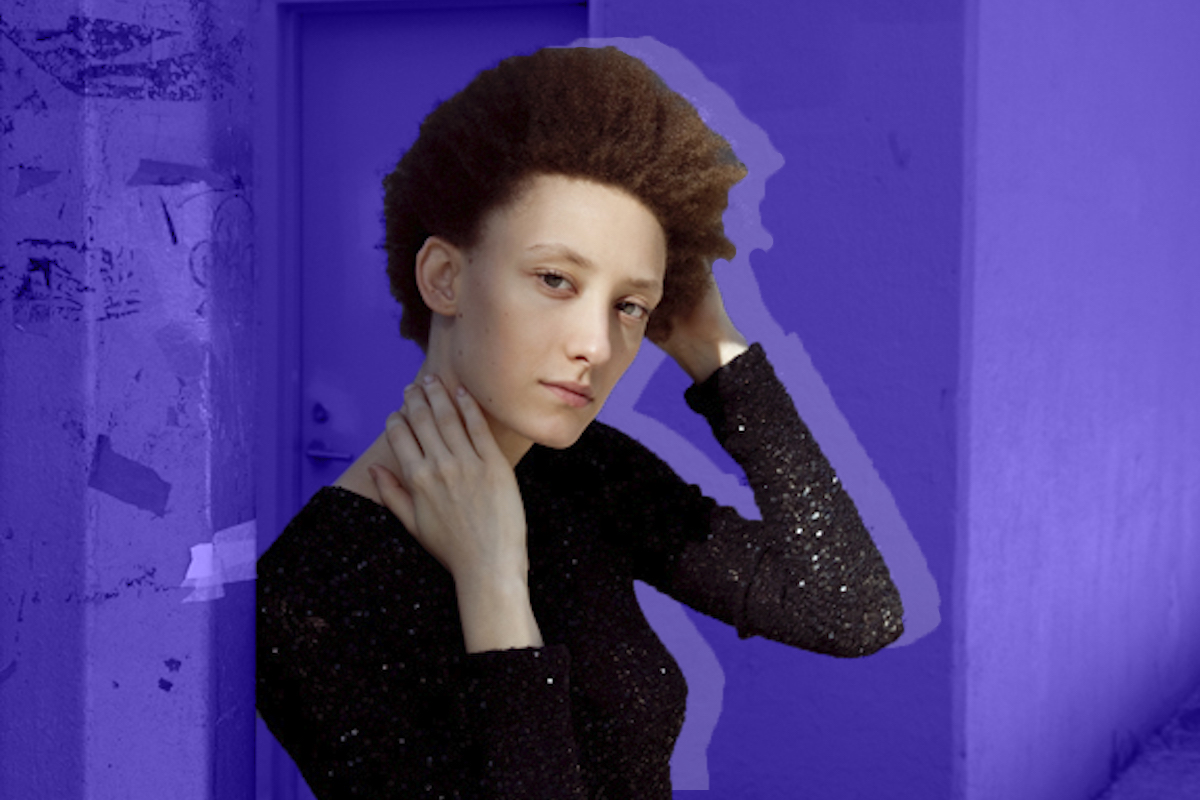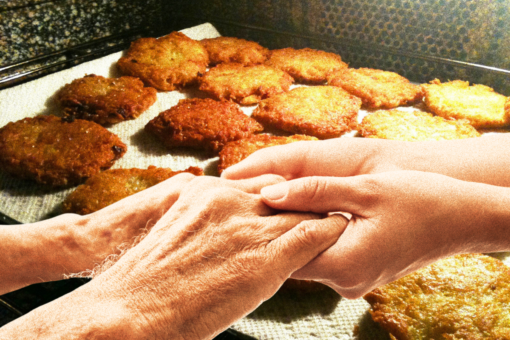Growing up in Jerusalem, Maya Eshet always knew that she wanted to be an actress. She attended a school for the arts and majored in theater, but there weren’t many opportunities in Israel to pursue her talent. (Now, Israel has a growing film sector with popular Netflix shows, like Fauda and Srugim at the helm.)
When Maya was 9 years old, she started doing voiceovers for films and TV. Her mother was an actress-turned-drama teacher. Her father, an associate director of an acting school and now a theater producer, was approached by a casting director who asked if he knew a bat mitzvah aged girl for an upcoming movie. Maya was 12 at the time and ultimately landed her first movie role as Tamar in Shiur Moledet: Avdei Hashem (Voices from the Heartland: Slaves of the Lord), a 2003 film about a religious girl who obsesses over her “sins” and forces herself into an endless ritual of cleaning her “impurities.”
Now, at 29, Maya lives in Los Angeles where she’s co-starred in To The Bone alongside Lilly Collins and Flower alongside Zoey Deutch. She’s also had main roles in Teen Wolf, Dead Women Walking, and most recently, Nightflyers. This coming year, she’s set to make an appearance in Star Trek. Alma caught up with the Israeli actress to talk about her Jewish upbringing and acting roles that spread awareness of mental illnesses and social injustices.
This interview has been edited and condensed.
Can you tell me more about your role in Shiur Moledet: Avdei Hashem?
It’s about a religious girl in a religious community who’s approaching her bat mitzvah. She is obsessing over thoughts of impurity. She thinks she’s impure and she just got her period. It’s very tragic. In the end, she attempts to kill herself. So that was my first role when I was 12. I got to pretend all day and I thought that was amazing. It was part of a series of short films, which were about an hour long, that was made for Israeli television. It played in the Cannes Festival and it still plays in Israel about once a year because there are themes of Passover in the film.
What are your thoughts on the film industry in Israel?
I think Israel has terrific art that’s coming out of it. Especially now, so many shows are being bought from Israelis. There’s so much talent, I believe, in Israel. I moved to the States 10 years ago when I was still a teenager to pursue acting in America. I did feel at the time that I wanted more options. First I went to a drama school in New York for three years and then graduated in the States and moved to L.A. My hope is that one day I will be able to act in Israel as well. I would love that. But the market is much smaller because the country is much smaller and I felt that coming to the States I would have more opportunities. But Israel is my homeland and I could always come back and work there.
How do you feel playing roles that spread awareness about mental illnesses and social injustices?
I feel very fortunate that I do get to play roles that have a lot of emotional depth. That’s what I look for in everything that I do. Every person has a really rich emotional life, I believe, and so most of us can dig somewhere and find that depth. We all felt pain. We were all upset at one point or another and it’s really just about realizing that.
In To The Bone, Dead Woman Walking, and Shiur Moledet, I could connect to them the most by really trying to grasp the positive and trying to hold on to that. Because they’re all people who had a really rough life. But then I find that that’s a soft spot for me if someone is having a hard time but is really trying to focus on what’s good in this world. That is something that I very much connect to and it could come in many forms. It could be someone who is 12 years old and is just trying to enjoy life but is so afraid of being contaminated in some way. It could be someone who looks in the mirror and sees themselves as ugly or has never been happy with their self-image and yet wears pink and dances and wears unicorns, like my character in To The Bone.
What was your favorite role so far?
To The Bone was an incredible experience because it was a personal story of the director and writer, so we were all on set knowing that this is her personal story and felt that the subject is really important. So that was something that I cherish. Then Nightflyers we filmed in Ireland and I was there for a long time and that was so fun. I don’t have a favorite role but it’s really just persistence. Every time you get up and are like “I can do this” are the moments I’m most proud of.
How has your Jewish upbringing contributed to your lifestyle?
Judaism is more of my culture, more than my religion, in a way. Especially growing up in Israel, because I was surrounded by Jews. I think the values that have really stuck with me and kind of gave me a base for everything I do in life is family. Really that feeling that you have a unit that would stand behind you no matter what and are really there to support you even from far away. I’m all the way in L.A, it’s a 14-hour flight. But that is something that is very strongly rooted in Jewish culture. That very much gave me the strength to just live a happy life. I’m very fortunate to have this type of family. Not everyone has that base no matter what religion they are, including Jewish. But I do feel in the Jewish religion, family is very highly valued.
Then just growing up in Israel, I’m very happy that I did because you grow up in a reality where you’re very aware of death and wars. It’s always there. It’s not that you walk around trying to avoid bombs or anything. But you just you face it all the time from a very early age, that there are dangers and that people die. Growing up with this weight and even just the fact that the country is surrounded by enemies, you grow up with this feeling that life could be hard. But because of it, you grow up very grounded knowing that there are hardships. And you know there are things that are more important than others. Instead of focusing on, well, my Barbies, in the Israeli culture it’s like yeah, but people die. So it gives you a sense of perspective that is very healthy. You don’t fixate necessarily on little things and know other things matter more and that that gives a groundedness to a lot of Israelis. I feel that it definitely did with me.
What do you like to do in your free time?
I have a dog that I love and that I like taking to the beach. I just got into magic cards. It’s the nerdiest thing ever, but I love it. I play Magic: the Gathering now, which I do for fun. I also enjoy writing.
Image by Yunice Kang



